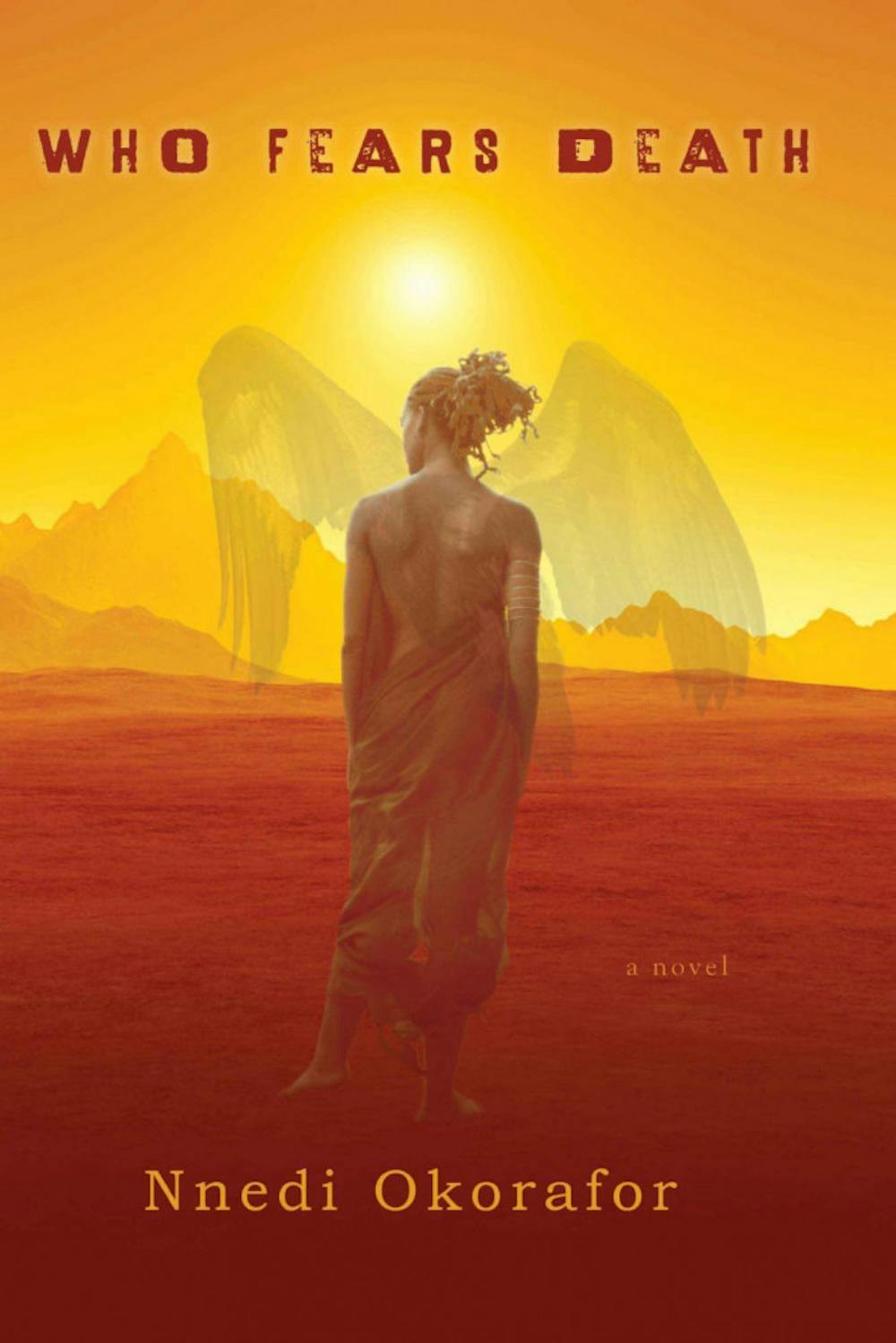Film and Media Culture Librarian Amy Frazier is liaison to Film and Media Culture, Dance, Theatre and American Studies.
Who Fears Death by Nnedi Okorafor, 2010
386 pages
RATING
4/5 cardigans
The What
Sometime between the time I started this novel and now, Afrofuturism went from being an established literary/artistic subculture with a history and a growing canon, to becoming The Hottest New Trend in Everything. I feel an impulse to congratulate Nnedi Okorafor for finding herself well-positioned to be a major beneficiary of the trend, but then, she has been here for quite a while, waiting for the rest of us to catch on.
Nnedi Okorafor is Nigerian-American, and her fiction is very much rooted in African, and particularly Nigerian, culture and mythology. She is one of the emerging cornerstones of new Afrofuturist literature, and as such, is especially relevant to the moment. (And yes, she’s the author of a few recent issues of the Black Panther comic book series. You know I couldn’t write this review without including a Black Panther connection, right?)
The Why
Shocker: this librarian is a huge nerd. I like a lot of nerd stuff. I’ve read more than my share of science fiction (both hard and soft) and graphic novels, and while I’m not all that into fantasy, the fantasy novels I do like, I really like. After reading enough of this stuff, though, if you have any awareness at all you start to notice that it’s all very… Eurocentric. There may be spaceships and unicorns and strange alien species, and maybe even Captain Kirk kissing Lieutenant Uhura, but basically, everyone in the future and/or fantasy realms is white. And speaks English. And apparently comes from Iowa, or the Shire, or some other comfortably-familiar-for-white-people place.
So I made it a project for myself to seek out some nerd-ish lit by people whose experience of the world is different from my own: Chinese fantasy novels, genderqueer science fiction (SF), and “Who Fears Death” by Nnedi Okorafor. Also, full disclosure: the reason I chose this Okorafor novel over her many others, is because I read that it got optioned for development into a TV series for HBO, and I wanted to read the book before I watched the show. I’m not necessarily proud of that as my selection criteria, but there it is.
The world of “Who Fears Death” exists an undetermined number of decades/centuries in the future, and the story takes place in an nonspecific part of Africa. That world is connected to ours through history (our present is their distant past) and something, we don’t know what, happened to utterly change our world into theirs. Our technology still exists as semi-functional, repurposed scrap material, but the world is not technologically-advanced in the usual SF mode. Magic is very much a living force, but the human condition seems relatively unchanged. Our protagonist is an adolescent girl named Onyesonwu, translated, meaning “Who Fears Death,” who is living with her mother and adoptive father in a reasonably peaceful small town.
Also, she can bring the recently-deceased back to life, among other things.
Note: this is not a gentle book. There is harrowing brutality and suffering visited upon female characters from very early on. It has narrative and thematic purpose, but it’s there, and Okorafor does not smooth over the rough parts. There is also real friendship and righteous vengeance and a long arc about love and sexuality as conduit for magic and power.
As a middle-aged white woman, I have to recognize that in reading a novel rooted in African culture, by an African-rooted author, I’ll inevitably miss some of book’s nuance and depth. Nnedi Okorafor and I come from very different figurative places, so I don’t always feel confident that my understanding of her story aligns with her own. But I wanted to open up my ideas about well-worn, familiar genres to genuinely different perspectives, while honoring the fact that my “genuinely different” might be someone else’s “finally, something I can relate to.” And all to the good, because if faraway worlds and fantastical settings can’t make room for perspectives outside the white, heteronormative, European norm, then what is even the point?
The Librarian Is In

Comments



